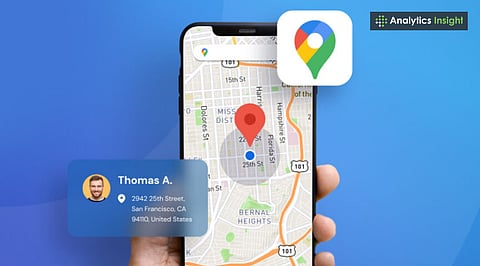

Tracking via IMEI and CEIR is the most reliable legal route in India.
Services like Google Find My Device or Apple’s Find My are great with prior setup and consent.
Live location or number-based tracking without permission may be inaccurate and unlawful.
Is it possible to accurately track mobile phone number location in India, and is such tracking always legal?
The answer lies in meeting specific requirements and following responsible procedures. IMEI-based systems, such as CEIR, along with real-time location-sharing features, are widely recognized tools for locating and recovering lost phones in India.
However, any recovery method must be used in full compliance with privacy laws, user consent, and telecom regulations. This guide outlines the correct, ethical, and legal approaches to tracking mobile devices, ensuring accountability and avoiding misuse.
Also Read: Track Smart: Top Mobile Number Locator Apps
The integrated services are the main choice in cases where the device is privately owned or shared with permission:
Android (Find My Device): If the feature is activated in settings, the device can be tracked via the associated Google account. The system displays the latest reported spot for offline devices.
iOS (Find My iPhone): Devices running iOS can be tracked using the 'Find My' app or iCloud. Both also provide options to remotely lock or wipe the device.
All these services use GPS, Wi-Fi, and cellular networks. Given proper consent, these services are appropriate, reliable, and legal.
Absolutely. Applications like WhatsApp, Google Maps, and Life360 offer the option to share one's live location with selected contacts. This is a must for security checks, keeping tabs on family, or coordinating with friends. Without permission, the feature does not work, and the application must be pre-installed.
IMEI tracking India, the Central Equipment Identity Register (CEIR) serves as an authoritative system for blocking and tracking devices using their IMEI numbers. Devices can be blocked and later tracked when reported and recovered.
The Sanchar Saathi portal, launched by the government, incorporates CEIR, simplifying the registration of complaints and blocking stolen phones. Utilizing this system, police departments throughout India have successfully recovered tens of thousands of stolen phones.
Indeed, it's only made valid through the police and telecom companies. This method locates the phone by triangulating information from nearby cell towers. It works well in populated cities where it can pinpoint within a couple of hundred meters. Still, it is something that private individuals can't use; phones can only be tracked in the context of a legitimate inquiry.
Not exactly. A vast number of apps and websites claim to be able to locate a phone by just the number. Most of the time, these turn out to be scams or, at the very least, inaccurate. It is both illegal and impractical to track someone solely by their number without their consent or the necessary technology.
Also Read: How to Track a Phone Number for Free: Step-by-Step Guide
It is possible to track mobile number location in India, but there are responsible ways to do it. For a personal device, if it has a built-in option such as 'Find My Device', 'Find My iPhone', or the ability to share location with trusted apps, then it would be the simplest and most accurate option.
In the event of a lost or stolen phone, it is recommended to contact the IMEI and utilize CEIR or Sanchar Saathi as the best legal option. Many users rely on official tools like CEIR to Find Lost Phone India securely and within legal guidelines. Ultimately, it serves as a middle ground, utilizing technology for recovery and safety without compromising privacy or becoming a target for surveillance.
